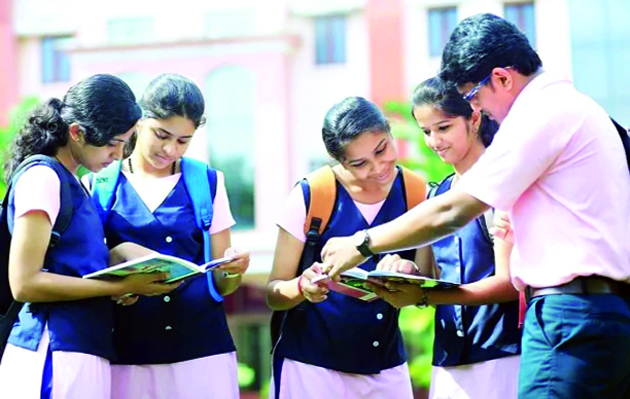Biju Dharmapalan
Science cannot be learned sitting inside the four walls of your college. If one has to grow in science you have to master how to build networking and get exposure to the state of art technologies.
Summer Research Fellowship Programs provided by various organisations set the stage for future success in academia and research fields. One of the prestigious fellowships for undergraduate and postgraduate students in India is the Science Academies’ Summer Research Fellowship Program which is jointly offered by the 3 science academies of the country, viz. Indian Academy of Sciences,Bangalore, Indian National Science Academy, New Delhi and The National Academy of Sciences, India, Prayagraj. This fellowship is offered for students and teachers to work in reputed institutions for 2 months. The minimum eligibility criteria for students applying for this fellowship is that they should have received 65% or above average marks in core subjects only (i.e. excluding languages) from tenth standard up to post-graduation. Undergraduate and postgraduate students studying in various branches of science and engineering are eligible to apply. Students need to upload a short write-up of 150-250 words stating the student’s field of interest for a particular research field. Usually, this statement of purpose is the main criterion for selection. The student should write the statement of purpose in their own words, not be copied from the internet or written by their teachers.
The student applicants should be studying in one of the following
* BS / BSc (II year only)
* BSc (Research) (III year only)
* BStat / BMath (II year only)
* BPharm (III and IV years only)
* BE / BTech / BCA (II and III years only)
* BArch (II, III and IV years only
* MS / MSc / MVSc / MPharm (I year only)
* ME / MTech / MCA / MArch (I year only)
* MStat / MMath (I year only)
* 5-year integrated) MS / MSc /MTech / MBBS / BVSc (II, III, IV years only)
* PharmD (III, IV years only)
* (dual degree) BTech + MTech (II, III, IV years only)
* (dual degree) BE + MSc (II, III, IV years only)
* dual degree) BS + MS (II, III, IV years only)
* Integrated PhD (I, II years only)
* MSc Tech (I, II years only)
Nearly 1000 students are provided with the monthly fellowship of Rs. 12500 in 6 domains, viz,chemistry, earth and planetary sciences, engineering including computer sciences, lifesciences, mathematics and physics. The academy also takes care of the to-and-fro travel expenses. To enhance the spread of Science and Technology in the specific regions of the country, the Inter Academy Panel has initiated the Focus Area Science Technology Summer Fellowship (FAST-SF) that is offered to 200 students/teachers from specified regions of the country. Thisyear the focus is on the North Eastern States of the country, Andaman, Bihar, Chhattisgarh, Himachal Pradesh, Jharkhand, Lakshadweep, Madhya Pradesh, union territories of Jammu and Kashmir and Ladakh, and Uttarakhand. The FAST-SF will be awarded to students and teachers studying/working in Arunachal Pradesh, Assam, Manipur, Meghalaya, Mizoram, Nagaland, Sikkim, Tripura, Andaman, Bihar, Chhattisgarh, Himachal Pradesh, Jharkhand, Lakshadweep, Madhya Pradesh, union territories of Jammu and Kashmir and Ladakh, and Uttarakhand.
The application for the summer research fellowship is open now and the last date for submission is 15th November 2023. More details are available at https://webjapps.ias.ac.in/fellowship2024/application_instructions.jsp
The science academies’ fellowship offers students to get exposed to various national institutions across the country. It will incite research interest in students and early career teachers. Students and teachers acquire new knowledge and skills only by interacting with people working in other institutions. The fellowship not only provides exposure to participants in state-of-the-art facilities but also helps in understanding the diverse culture of our great nation through their stay in a different place. Since the institutions listed are mostly centres of eminence, the students get trained by stalwarts working in the field. This will help in improving the quality of the scientific skills of students and teachers. Apart from enhancing the educational and professional development of participants, it will also help in creating quality scientific manpower for the nation’s development.
(The author is a science communicator and an adjunct faculty at the National Institute of Advanced Studies, Bangalore)


